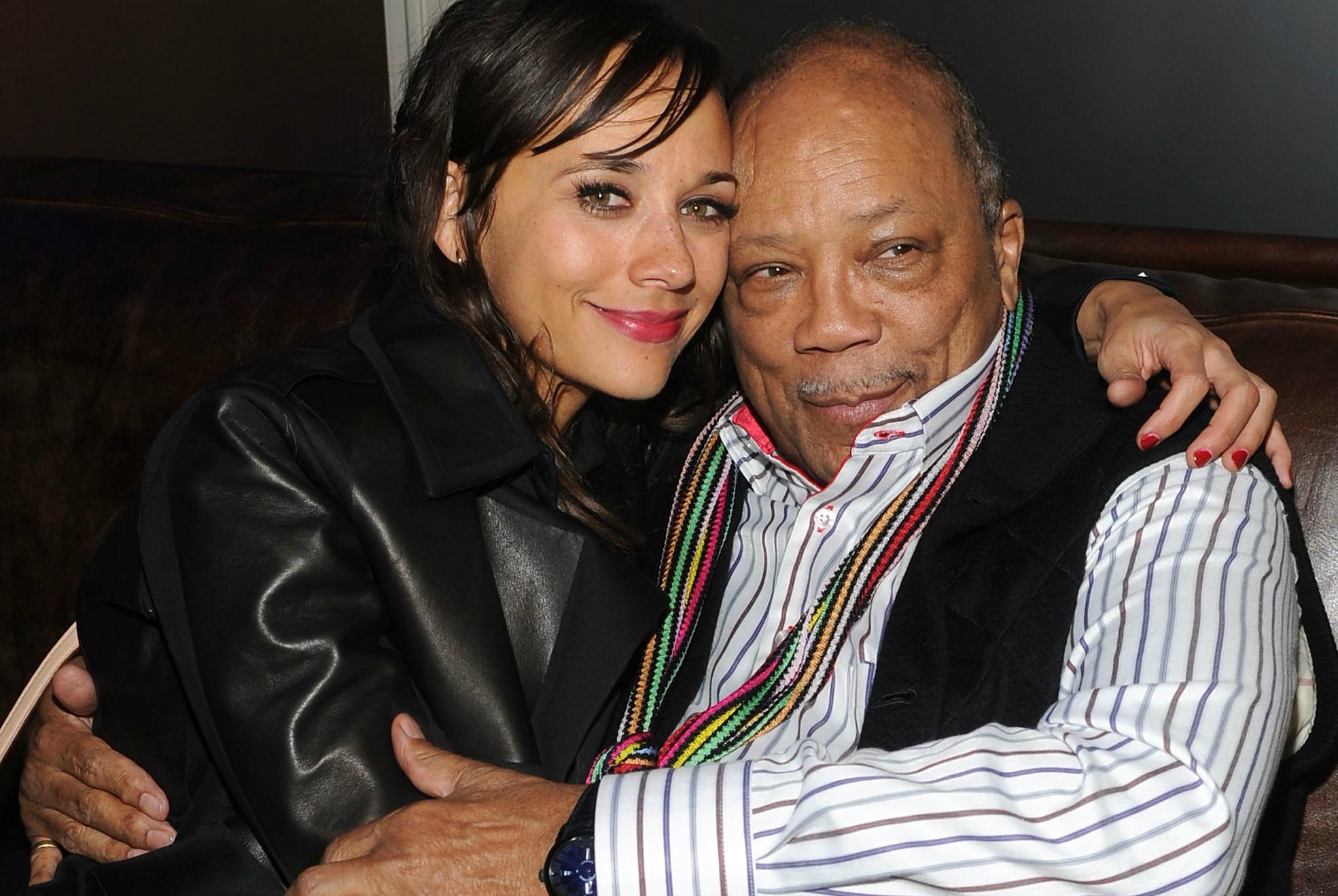Quincy review: Rashida Jones chronicles her father's monumental contribution to black history
Netflix documentary shows how Jones excelled in whatever he put his mind to
It’s hard to think of a rags to riches story more stark than that of Quincy Jones. While he grew up in the South Side of Chicago in the early 1930s, his grandma would feed the family “whatever she could get her hands on”, which often meant rats.
“We ate them because that’s all there was to eat,” Jones tells us early on in Netflix’s definitive new documentary of his life. His grandma was the matriarch of the household because his mother had been dragged from it, kicking and screaming, in a straight jacket.
Summing up his childhood to Dr Dre, Jones gives the backstory to his many scars.
“You see that right there?” he points to a mark on knuckles. “Went on the wrong street and they took a switchblade and nailed my hand to a fence; I was seven years old. See this one here?” he highlights a dent in his temple. “It was an icepick, man.”

How staggering then, that this poor black kid growing up amid poverty and racism, would go on to produce more than 2,900 songs, earn 79 Grammy nominations, and to this day be the producer of both the best selling album and song of all time. When Nasa’s Apollo 10 mission orbited the Moon, it was his music they were playing (Frank Sinatra’s “Fly Me to the Moon”).
Quincy was co-directed by his actor daughter Rashida Jones and documentarian Alan Hicks and is arranged as superbly as one of Jones’s scores. In the present day, we find the producer – now in his eighties – preparing for what might be his last major creative project: a concert celebrating black music and launching a Smithsonian museum dedicated to black history, with the event set to be attended by the Obamas.
With its subject now frail, a life of ceaseless hard work (and vodka) having taken its toll on his body, this portrait could have become sombre, but it keeps cutting back to the story of his life told through archival footage and narration from Jones.
It’s thrilling to see a young Jones in his element, and some iconic footage has been dug up for the documentary. One piece observes the producer as he watches Michael Jackson’s “Thriller” music video being filmed. It’s going to change the game, he tells Jackson, and he wasn’t wrong.

Jones worked with them all, from Frank Sinatra to Big Daddy Kane, and the impression is of a man who made a seismic contribution to black culture. His collaborations in jazz, pop and film scores are well known, but we also find him in the 1990s venturing into hip hop. Gathering a host of major rappers in a room at a time when the East coast v. West coast rivalry was claiming lives, he tells them: “We no longer can afford to be non-political.” With those words, he revolutionised an entire genre
There is always a cost to success though, and for Jones it was his family relationships that suffered as he constantly worked and travelled the world. “I know it’s a sickness in a way, people call it ‘workaholic’ or whatever, but it’s the only way I know,” he admits.

Watch Apple TV+ free for 7 day
New subscribers only. £9.99/mo. after free trial. Plan auto-renews until cancelled.
ADVERTISEMENT. If you sign up to this service we will earn commission. This revenue helps to fund journalism across The Independent.

Watch Apple TV+ free for 7 day
New subscribers only. £9.99/mo. after free trial. Plan auto-renews until cancelled.
ADVERTISEMENT. If you sign up to this service we will earn commission. This revenue helps to fund journalism across The Independent.
Jones had seven children by multiple mothers, and his first wife talks about his infidelity very matter of factly. He admits that he wasn’t there for his kids as much as he should have been, and led an indulgent, perhaps slightly selfish life – at least in his twenties, thirties and forties. Quincy’s end credits are interrupted poignantly with an old TV interview snippet. “Is there anything you didn’t succeed in?” the host asks him, to which Jones pauses before laughing: “...Marriage!”
It would certainly have been interesting if this film, which borders on hagiography at times, had delved into Jones’s psyche a little more, but it doesn’t feel like a missed opportunity. Rather, in the hands of his daughter Rashida, this is a film that says: why dwell on his flaws, when there is so much life and positivity to celebrate?
QUINCY is streaming on Netflix now
Join our commenting forum
Join thought-provoking conversations, follow other Independent readers and see their replies
Comments
Bookmark popover
Removed from bookmarks